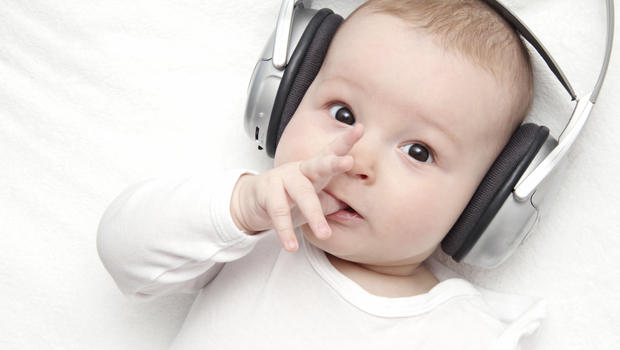
“A good doctor will stand back and do nothing unless he or she absolutely needs to do something.” — Alisha Tamburri
Pregnant and determined to at least aim for a natural birth, fate landed me in the lap of HypnoBirthing. Inspired by Dr. Grantly Dick Reed’s prolific book, Childbirth Without Fear (published in 1943), in the early 90s in Concord, New Hampshire, Marie F. Mongan founded the first ever birthing method to target that crippling emotion—‘fear’—and worked to relax a laboring woman both mentally and physically. Having taken the 5-week course (Hypno Birthing The Mongan Method) at a local yoga school in Los Angeles, I decided to interview the woman who radically changed my attitude about both childbirth and the capabilities of my body. Hypno therapist, HypnoBirthing instructor, and birth doula, Alisha Tamburri has attended hundreds of births and taught the method to countless moms and dads like myself. HypnoBirthing, now acknowledged by medical professionals and hospitals around the world, is quickly becoming the go-to method for young couples preparing for birth. Over a cup of ginger tea, Tamburri speaks candidly about the monetization of hospitals and childbirth in the United States, overcoming fear, and even orgasmic births…
Given how relatively recent HypnoBirthing is, am I right in assuming that you did not use the method for your own two births?
I used probably a combination of meditation and my own form of hypnosis. Going into the ‘hypnotic zone’ or ‘mediation zone’—because I’d always been a meditator—so this just seemed like a natural way of entering the zone. So I did have two drug free, pain free births.
So you had already been wired into HypnoBirthing before it had even been invented?
Yes. I lived in a Kundalini Yoga Ashram before my daughters were born. That was very powerful mediation and chanting. So I had the background in meditation and yoga. So to me it wasn’t even an option to have drugs for childbirth. It just wasn’t part of my mindset.
What was your relationship to fear about your first birth?
I was truly excited and fearless and so looking forward to giving birth and meeting my child—because back then you didn’t know what you were having even if you wanted to know. The only class they had back then was a Lamars class. My husband and I had moved out from New York and the only people that we knew were the neighbors, and they were pregnant at the same time. And she had given birth and so the husband came over and reported what a horrific, horrible experience it was, and on and on and on…and what I was going to be like, that I’d be screaming… It was a nightmare. So I asked him to leave. Then the fear set in. And I don’t know how I got a hold of the book, Childbirth Without Fear by Dr. Grantly Dick Reed, and I speed read that book and then I was okay again. And then two days later I went into labor. So that book brought me back to a good place and that’s the book that HypnoBirthing was also based on, which I always thought was such a wonderful thing that the book that basically got me back into that positive frame of mind was the book that Marie Mongan based HypnoBirthing on. I always found that to be so auspicious: the book that changed my life, changed my life a second time.
He must have been a pretty progressive doctor for his time to have come out with that theory in the 30s/early 40s.
He was so progressive that the book was never published while he was alive because his colleagues thought he was crazy. I think probably all natural child birth classes are based on his findings and his work in that book.
The great Ina May Gaskin said in her 2013 TED Talk, “It’s easy to scare women, it’s even profitable to scare women. But it’s not nice, so let’s stop it. Really, really bad manners.”
That’s great, I love her.
So what are your thoughts on that? Why do we women live in fear of doing what is the most natural thing which is to birth our own baby?
Because other women are scared and they’re not educated in the body knowing exactly what to do so they’re sharing their experiences with other women because they’ve been conditioned and programmed by their mothers or their aunts or friends or doctors. So many times I hear women say, ‘Don’t you want an epidural?’ Or ‘You should have an epidural.’ Or their own doctors are not believing in the body either. So I think its from other people. Like when my neighbor came over and said things that scared me about what happened to his wife. I’m sure his intention wasn’t to scare me but to share what had happened with them. So its just people’s stories.
Also, with the onset of hospitals. Because women would just give birth at home and other women were there for her, the midwife came or the country doctor came or even before that it was just the most natural thing in the world. There were no hospitals. They just gave birth uneventfully at home. And so I think modern medicine made things “better”. (Laughs). It’s like, you can’t change nature or improve on nature. And I think that’s what was happening, the doctors were coming up with different ways of having women labor: by themselves in rooms alone, without any support.
The most natural, normal way to give birth is at home. Just like death. Birth and death. I recently took a training of being a death doula. Being with people as they’re passing. The best way, in my opinion, to pass, if possible, is in the comfort of your own home. So both of those things have been taken away a lot from people.
So I think “modern medicine” has wonderful things about it that can be absolutely life saving and changing, but going back to nature… As I always say, you can’t improve on nature.
Do you think that since the release of the Ricki Lake’s documentary film The Business of being Born in 2008 the American hospital system is getting better?
Yes, I do. At a very slow pace. Next week I’m going to a workshop at Cedars Sinai (in Beverly Hills) and they’re doing their best to make things better. They tend to realize that women need more space, they need water, they don’t take the babies away (from their mothers) like they did not long ago. So I think a lot of the hospitals are getting better. Some of them are not which is very surprising that here we are in 2016 and that there aren’t birthing tubs and birthing suites. We are behind the times in a lot of ways.
Being at an age now where most of my friends are having babies, two things are fascinating to me: Half of my friends who have already given birth had caesareans, and most of my friends opted for an epidural. So it does feel like we are in the dark ages in some ways.
There’s a handful of wonderful doctors that are very supportive of natural birth, and recommend it. But that’s not the majority because they make more money when there’s interventions; the hospital makes more money, the doctors make more money. But it’s not a medical situation, it’s a natural situation. But it’s viewed differently.
Do you think ego can be a part of it too?
Yes.
Because it kind of undermines a doctor’s job if they don’t have to do anything and the woman can birth her own baby without intervention.
Whenever a doctor says, ‘I delivered her baby,’ and I’m thinking, ‘no, you didn’t, the woman birthed her own baby. No one can deliver someone else’s baby, it’s not possible.’ They love to say, ‘I delivered her baby.’ Well, first of all the baby birthed him or herself, the baby came into the world with the mother. And even the most wonderful doctors will say that. And I think it’s just the terminology. I’ve always wanted to give a workshop for doctors, nurses, and midwives on terminology so that women can feel more empowered. But sometimes doctors, nurses, and even midwives can put a lot of terror into a mother. They’re not realizing that the way they talk impacts the way they’re viewing their birth, their pregnancy.
“the body is made to give birth and possesses infinite wisdom. Just like when we need to sleep, the body falls asleep, if we need to use the rest room, we urinate, or we have a bowel movement…” — Alisha Tamburri
My mother had two natural births, epidural wasn’t really the done thing back then in the early 80s. But she was in a huge amount of pain and it was all very dramatic. I find that women from her generation often talk about this huffing and puffing which is the Lamaze technique. And they assume that that’s what I’ll be doing. Trashing about on the bed is the imagery that comes to mind. I just wonder, how can women of the Lamaze generation better understand what HypnoBirthing is about?
By just letting them know that the body is made to give birth and possesses infinite wisdom. Just like when we need to sleep, the body falls asleep, if we need to use the rest room, we urinate, or we have a bowel movement… When we’re hungry, the body lets us know when we need to eat. So it’s the same thing with birthing: the body knows how to give birth. It’s a very, very natural occurrence. The muscles of the uterus are already pushing, the hormones are kicking in and assisting, the baby is doing his or her best and working through the birth path to come into the world, so it’s a very natural occurrence that’s normal, natural, and can be quite beautiful. And that’s how orgasmic birth came out. Women can even have an orgasm while they give birth.
Lamaze, in its original form, was actually very well done and then it started to change. The panting can be helpful if the baby is coming very quickly and they need to guide the baby’s head a little bit to prevent tearing. So the panting and blowing is used to slow down the birth. When my first daughter was born there was a labor room and a delivery room. I was in the labor room but I couldn’t give birth in that room. So they said, ‘Use your Lamaze breathing, you can’t give birth in this room.’ So I was wheeled down to another room while using the Lamaze panting and the blowing to hold the baby in. And so I always found that interesting that the breath we were taught in the Lamaze class was the breath to hold the baby in. But when I was actually giving birth I didn’t use that breath anymore.
Apparently Lamaze in its original form, was a wonderful method but then it just got changed over the years. But that breathing is not helpful at all and they still show it in movies. Panting and blowing is not relaxing at all.
That’s all my generation have grown up with in movies and on TV, along with the stories from our mothers. So it’s a radical shift from that to the HypnoBirthing method.
Right. So again, over time things change. It would be interesting to know the very origins of Lamaze.
Yes, because my understanding is that it was about honoring natural birth and supporting women to birth naturally. But yeah, there doesn’t seem to be a focus on the relaxation element.
No. I don’t think any of the birthing techniques were focusing on how a mother can relax. It was more intellectual and physiological. Rather than learning how the body works and that the woman doesn’t actually have to do anything.
So there was a wonderful story, not so wonderful at the time, where there was woman in a coma (in the UK) who was pregnant and they didn’t give her a C-Section, they didn’t give her an epidural or use forceps, the baby just came out. Her conscious mind wasn’t in the way interfering.
Have you worked with many mothers who learned HypnoBirthing but threw it out the window once they finally went into labor?
Most of them don’t. I mean, even if a woman ends up needing to have a caesarean, she’ll use the techniques. So I don’t know of very many women who didn’t access the techniques, regardless of how the baby was coming into the world. But there might be some—maybe they didn’t practice, maybe they weren’t as focused on having a calm, gentle birth. That may not have been a priority. Most of the women who take the class are wanting to have a natural birth, if possible, that’s their goal. But not all of them. They might say, ‘will this work if I want to have an epidural?’ and I’ll say, ‘Yes.’
“What I like about HypnoBirthing is that it’s very mainstream, even though the name doesn’t sound that way. It’s a very simple and basic way of being.” — Alisha Tamburri
Are there other appropriations of HypnoBirthing? People teaching HypnoBirthing, but not Marie Mongan’s method?
Yes. So Marie Mongan was the original founder of HypnoBirthing. So what happens when there’s something wonderful out in the world is that some people will take the training and then start their own and create their books and programs and CDs. So the method used to just be called HypnoBirthing and it was Marie Mongan and that was the HypnoBirthing Institute. So they then started calling it HypnoBirthing The Mongan Method to differentiate that this wasn’t a one day class… Because there is somebody teaching something that she calls “Hypno Birthing” and its a one day class. But you can’t learn all of these techniques and practice them and come back and go over them in a day. And I’ve had some people come take my classes after they took this person’s class because they didn’t really have the techniques. And then there’s other ones when they tell moms that they can numb their bodies and give themselves epidurals (laughs). And then when the women can’t they of course get frustrated.
What I love about this birth method is that it’s very real. It doesn’t promise that everyone’s going to have a drug free, pain free birth. It gives the tools and techniques that enables women to have more control over their birth and knowing ways that they can relax and also the role of the partner. HypnoBirthing really includes the partner. So it’s like anything. If I’m going to take a course and learn something new, I’m going to take the course from the creator of that course, not a spin off. If there was something better, I’d be teaching that.
What I like about HypnoBirthing is that it’s very mainstream, even though the name doesn’t sound that way. It’s a very simple and basic way of being.
I think it all boils down to respecting mother, father, and baby, and treating everyone with love and care. Not doing things that are detrimental to their well being or rushing them. The birth empowers women for life, and then the way the baby came into the world effects the baby for life as well. I always say, ‘the warmer is at the mother’s chest.’
How a baby comes into the world effects them tremendously. When the doctors say ‘they don’t feel anything,’ I say, ‘well, how could the not? They’re little babies, little beings. Of course they feel, of course they can be loved and calm or not.’
Feature image source: www.cbsnews.com
To contact HypnoBirthing instructor and birth doula Alisha Tamburri, and to find out when and how you can enroll into her HypnoBirthing class, go to her website:
http://www.hypnobirthingca.com




















